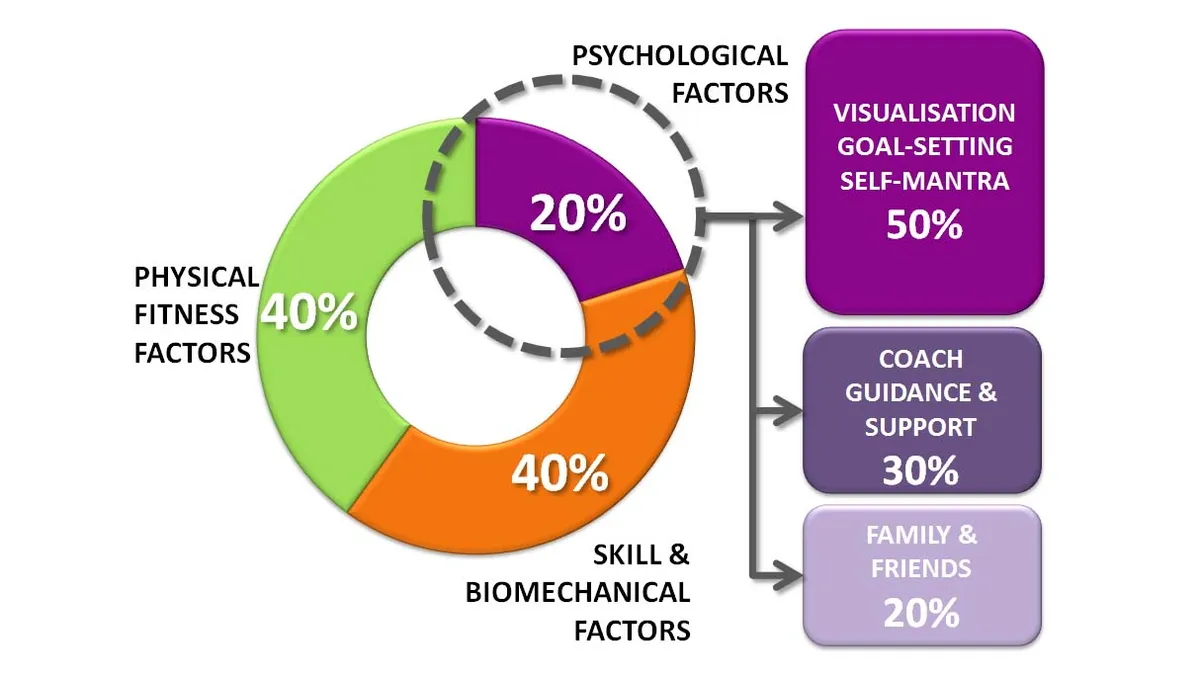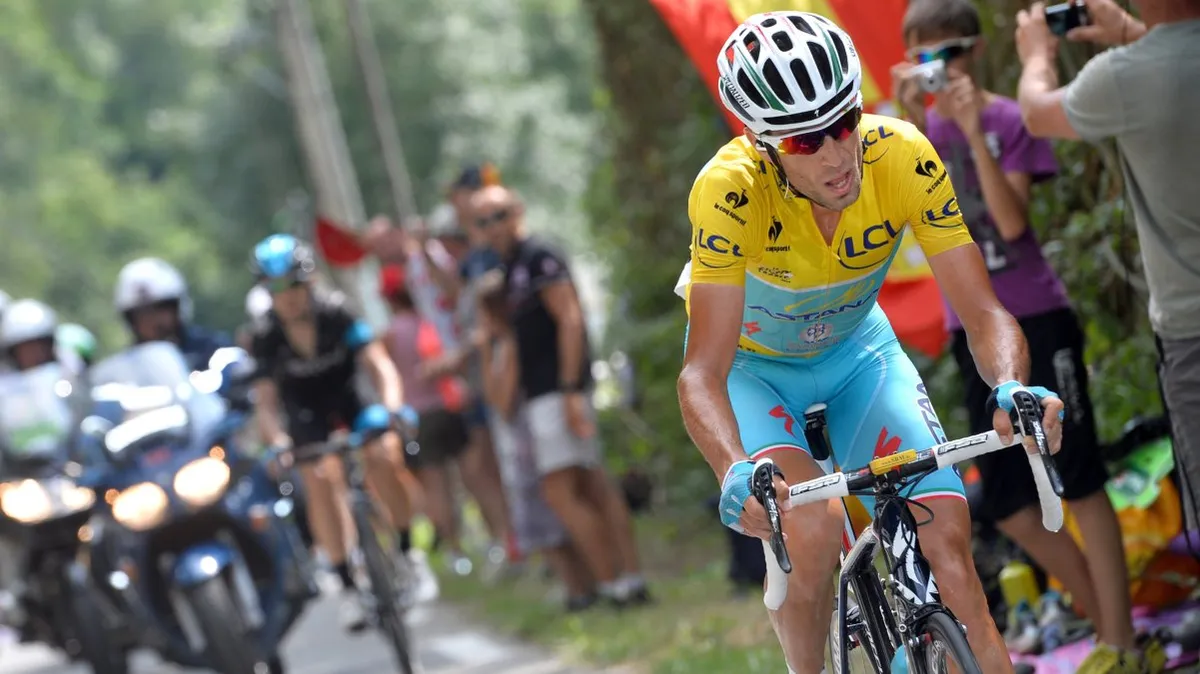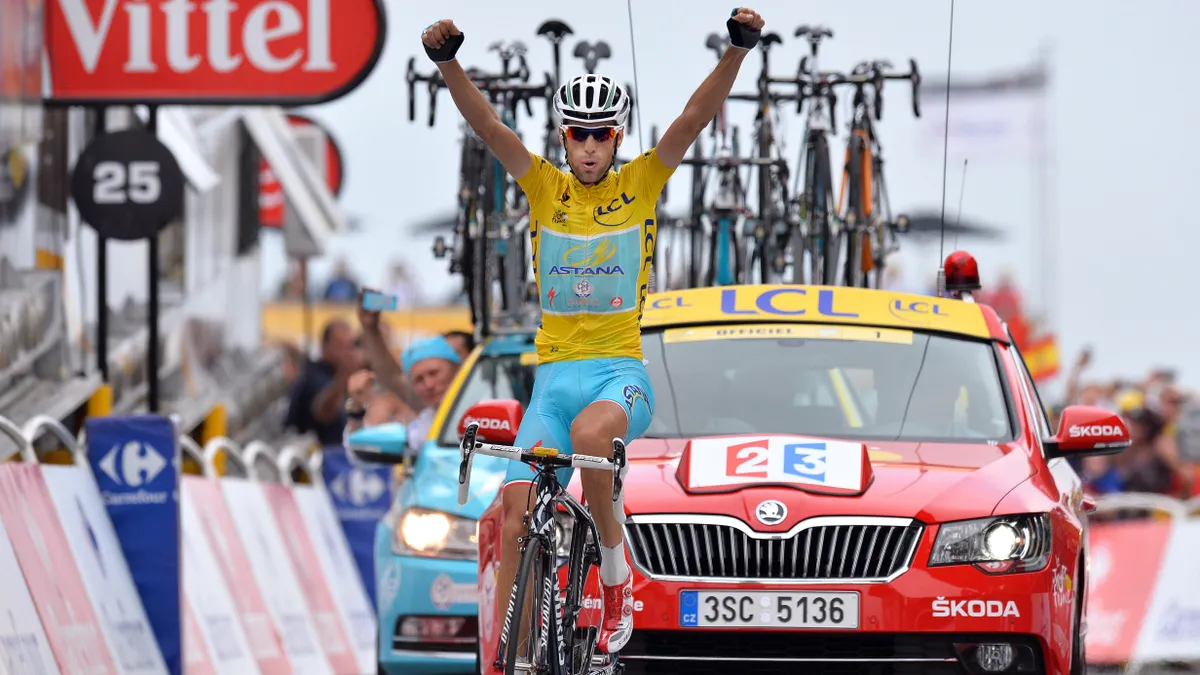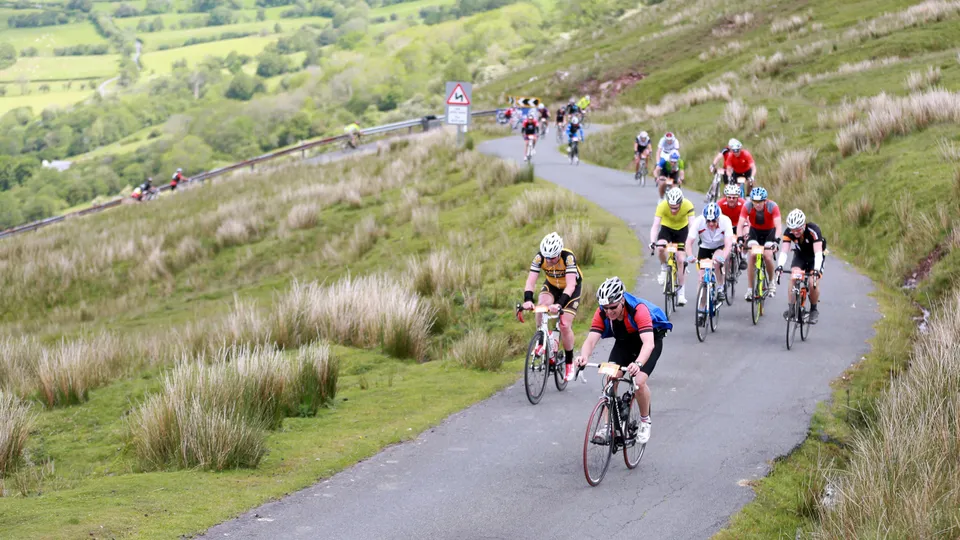A new study into the secrets of sporting success has found that a massive 20 per cent of performance outcomes are driven purely by psychological factors, so we look at how you can put in your best ever cycling performance with the right mix of motivation, confidence and self belief.
The study, completed by Professor of Sports Psychology Andy Lane of Wolverhampton University, was an investigation into the difference between winners and losers in sport. It was commissioned by grassroots sports supporters Grant's Whisky. Lane found that while physical fitness, skill and biomechanical factors are essential components to sporting success – contributing to 80 per cent of performance outcomes – 20 per cent is down to psychology.
Lane said: “20 per cent of the formula is down to motivation, confidence and self-belief and these factors are nearly always the results of a solid support network. Family, friends and coaches are there from the beginning, cheering on the athlete… helping them to bounce back after a loss and to manage the high level of pressure along the journey.
“Having this support network helps build [the athlete's] confidence and is key in terms of visualisation, goal setting and self-mantra. Many athletes have the same skill and fitness levels but those at the top, who stay at the top, have the psychological advantage. This ‘magic fifth’ is the winning component as a positive mental attitude has a prolific effect on performance.”

Psychology accounts for an impressive 20 per cent of sports performance according to Lane's study
Of this psychological 20 per cent, 50 per cent involves visualisation, goal setting and self mantra, while 30 per cent is made up of coach guidance and support, with 20 per cent being down to the effect of family and friends.
To apply these findings to cycling, athletes could potentially unlock a significant performance increase by focusing not only on the various training sessions that lead to muscular and cardiovascular fitness improvements, but also on improving motivation and confidence / self belief.
Motivation
During the off season, just looking at your bike – seemingly mated with morale-sapping permanence to the turbo trainer – can drain motivation. Even once the darkness and cold lifts, a bad or missed training session, a loss of fitness or weight gain can can send motivation spiralling downwards. One of the best ways to maintain the drive to train throughout winter and the early season is through goal setting.

Goal setting is key – Nibali's focus on this year's Tour de France saw him take yellow and defend it with style
Picking and entering your key events as soon as possible is one of the best ways to maintain focus and motivation. Think about other factors you'd like to achieve along the way to these goal events, such as losing a couple of kilos in weight, hitting a certain time on a regular training route or getting up a local hill without hitting your easiest gear. Whatever goals you set, they should be realistic with regards to the time you have to train and your potential ability.
Don't just think about the goals either – write them down and stick them somewhere prominent – the refrigerator door or office desk are ideal places that will remind you every day what you're striving to achieve.
Lane's point about a solid support network is also crucial for motivation, so share your goals with family and friends – the fear of not wanting to renege on those hopes and the reassurance of your supporters can do wonders for motivation. Remember though – you can only assert so much control on your training, and if outside factors such as injury or illness affect your ability to achieve your goals it's important to alter them as you go along – this is good practice, not failure!
Confidence / self belief
The confidence to perform well on a given day comes in large part from putting in the hours of training and achieving the goals you've set along the way to your most important events. It's crucial to arrive at your event or race with as few training regrets as possible. Sometimes it's hard not to get hung up on missed training or early retreats home due to bad weather – instead try and focus on all the work you have done, taking strength from really hard sessions you thought you might not be able to complete, the goals you've achieved towards you main event and the times you've toughed it out when not feeling good.
All these positive elements are great for building confidence, so a good way to make this tangible is to keep a training log. As page after page fills up, there will be a physical reminder of all the effort you've put in. It's also a great way of recording tough sessions you can refer back to mentally to boost self belief and motivation as well as assessing smaller events – turning potential negatives from one performance into positives for the next.
Using your support network of family, training partners and coaches can yield successful outcomes too. Reassurance that you're putting in the time, keeping with your peers or achieving fitness test improvements can provide crucial positive feedback.

Imagining the feeling of crossing the finish line is one way to boost motivation, confidence and performance
Visualisation and self mantra are two other factors that can improve performance. Taking time to visualise yourself riding your event – and doing so with strength and ease – can aid your self belief when it comes to the ride itself. In order for this to be most effective, familiarising yourself as well as possible with the route is key.
Just as Tour de France riders study profiles, send support staff ahead to video the final kilometres or ride crucial sections of a mountain stage months before the big day, knowing what's ahead helps eliminate fear and adds confidence.
Some elements of confidence come from more mechanical sources. If you're not a particularly strong home mechanic, having your bike serviced by a local bike shop you trust before your event can eliminate worry. You can also practise things such as changing a puncture – and then draw on this in pre-event visualisation to help nurture the belief that you can deal quickly and calmly with this outside force during your event.
Visualising the ultimate goal of crossing the finish line and seeing the proud faces of your support network is another really positive way to bolster self belief and motivation during the event itself. In the same way, coming up with positive, personal mantras that you can repeat to yourself when you're struggling can have a marked effect on performance, which in turn boosts confidence and helps you achieve your cycling goals.
